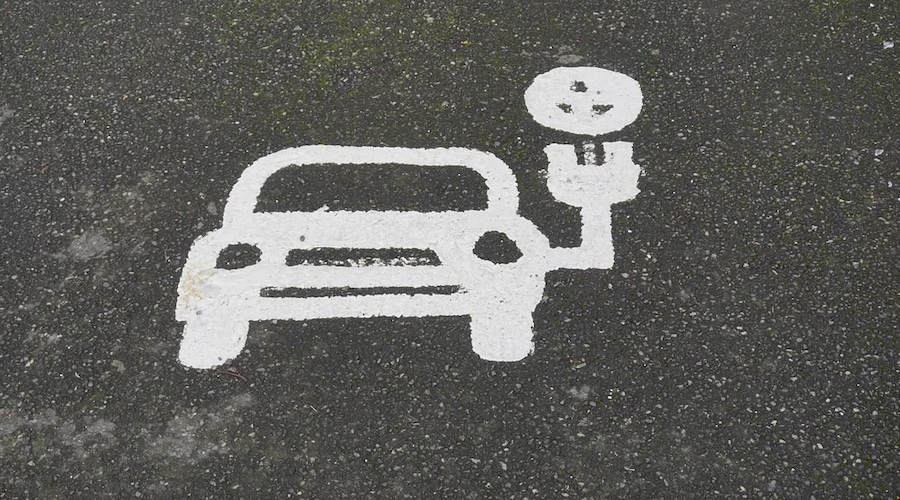Will the EU and the US be able to get rid of China’s grip on electric cars?

China holds an apparently unbreakable record over the entire production cycle of electric cars, from metals to batteries to vehicle assembly. Will European and American plans for independence succeed? Here's what Bloomberg's analysis says
While dealing with the uphill challenge of the energy transition symbolized by electric cars (EV), the West must deal with the other side of the coin: China's unbreakable record in the entire production cycle of EVs themselves. A recent Bloomberg report illustrates all the reasons why the European and American goal of independence from China in areas such as mineral refining or battery cell production is still a long way off.
China's lead in electric cars
It will not be easy, writes Bloomberg , to challenge or even undermine China's lead in the EV production cycle. The second economic superpower has, for starters, a near-monopoly in battery production, which makes global car manufacturers strictly dependent on Dragon partners.
In particular, Chinese battery producers hold an 80% share of global cell production, the result of a production chain that goes from extraction to processing and which is increasingly in Chinese hands.
Domination in extraction…
Yet the extraction of critical minerals for electric cars is one of the areas least controlled by China, in a gap that the country is trying to recover by investing in African lithium mines and in Indonesian companies that extract nickel.
Mining is also a sector in which Western car manufacturers such as General Motors are desperately trying to regain ground through large-scale investments and free trade agreements.
…and in refining
The refining sector is another of those in which China has spent the most to gain dominance.
Chinese companies, Bloomberg points out citing data from the International Energy Agency, refine more than half of the world's lithium, two thirds of cobalt, more than 70% of graphite and about a third of nickel.
The components of the cells
Even in the production of cell components, i.e. the essential parts of a battery, Beijing is roaring.
It controls about 70% of the world's production of cathodes, more than 80% of that of anodes, and about half of the output of electrolytes and separators. These are the components of lithium-ion batteries, three-quarters of which globally are produced in China largely by just two companies, Contemporary Amperex Technology and BYD.
China's manufacturing infrastructure in the crosshairs
This manufacturing infrastructure, combined with generous government subsidies and other forms of government support costing billions of dollars a year, has made the country one of the largest EV markets on the planet, where one in three new cars is now electric.
But this record is now in the sights of the USA and Europe who are trying to undermine it and recover positions. Announcing a European investigation, Ursula von der Leyen today accuses China of flooding markets with EVs sold "at artificially low prices".
The battery compartment
But the problem raised by the President of the EU commission is essentially linked to batteries, i.e. the most expensive part of an EV.
A Chinese battery costs on average 127 dollars per KW/h, while, according to BNEF, prices in North America and Europe are 24 and 33% higher respectively. The challenge for the West therefore refers to the ability to build competitive battery factories with which to diversify and strengthen its supply chains.
But there are cost issues here too: BNEF calculated that a new battery plant in the United States or Germany would cost $865 million; in China, where the cost of labor and production is lower, only 650 million are needed.
Unattainable independence
Thinking from the perspective of the entire battery production cycle, BNEF itself calculates that Europe and the USA would have to spend 98 and 82 billion dollars respectively if they really wanted to achieve their ecological transition objectives without tying themselves hand and foot to China.
But if the EU really wanted to become completely independent from China by overseeing the entire EV supply chain, the bill would even rise to 382 billion euros.
And protectionism?
Bloomberg immediately makes it clear that the protectionist option is not viable. If Europe were to really impose duties on the Chinese EV, Beijing would only have to react with a devastating counter-move such as restrictions or even cutting the export of those seventeen earth-rate elements critical for electric motors and of which China holds control.
Chinese countermoves
It is also not excluded that China would respond to Europe's closed door with a new cycle of innovation that would have the effect of perpetuating its dominance. There is already talk of a new generation of batteries that are based on sodium rather than lithium.
But Beijing has another option available and that is to circumvent any tariffs with investments in countries that are exempt from them. Some Chinese companies have already eyed the South Korean battery market with the aim of taking advantage of the country's favorable trade relations with the USA.
The Old Continent itself is at the center of this strategy: CATL has decided to intensify production at its cell plant in Germany and is building another in Hungary; SVolt Energy Technology aims to build five new factories in Europe and has started contacts with car manufacturers in the region to supply them with batteries.
This is a machine translation from Italian language of a post published on Start Magazine at the URL https://www.startmag.it/smartcity/cina-primato-filiera-auto-elettriche/ on Sun, 08 Oct 2023 05:34:42 +0000.
